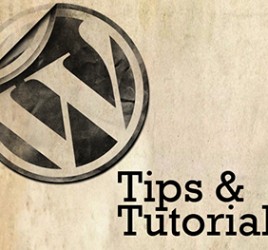
July 24, 2012
by admin
How To Get Your Website Ranked On Google
Quick things you should do now:
- Add the website URL to Google
- Include the website address in your LinkedIn profile and ask your staff to do the same
- Add the website address to your Google profile
- Make sure that all your marketing materials include your website – letterhead, business cards, print ads, flyers
- Share your new website on Facebook/Google +/Twitter
Things that take a bit more effort but are vital:
- If you used generic content then change it ASAP, making sure you don’t copy it from somewhere else. Google rewards unique content. Keep these points in mind:
- Best practice is to have between 250 and 500 words on each page
- Google likes sites that use words such as guide/compare/review/find/information etc
- Use the types of words and phrases that people are likely to type into Google rather than fancy words, for example, ‘tour’ instead of expedition.
- Create links to highly ranked authority sites
- Review the Page Title and Page Description fields under page properties to ensure that they contain the most important key words and phrases that you’ve written into your content. Title: 6 – 12 words, no repeat words. Description: 12 – 24 words in natural sentences, few repeat words.
- Register your business with Google Places/Yelp using the identical information that you have listed in the yellow pages
- Register for Google analytics and insert the code into your website.
Strategies to help you smash the competition
- Ask some good clients to review your business on Google Places/YELP
- Find highly ranked and relevant sites that will link to your site
- Add more pages full of content which is useful and interesting to clients
- Write articles/blogs and fresh content to be published online frequently.
- Create interesting things to put on your website that will hold people’s attention like videos, interactive tools, comparison tables. These have to be high quality but also fast to load.
- Research top sites in your field and see which keywords gain the best results (by “right-clicking” then choose VIEW PAGE SOURCE). Tthen update your META data and page content accordingly.
Keep in mind that Google likes to highly rank relevant, content rich, engaging and up to date sites from recognized genuine authorities and you won’t go wrong.
Reasons your competition’s website might be doing better than yours.
There are no magic wands or definitive answers when it comes to search engine results. Google admits to using over 200 signals to help rank websites, but they aren’t explicit about what those signals are.
Based on current consensus of what’s important, you might find that:
- They have more content addressing the topic around the search term you want to rank for
- They update their website content more regularly
- They have not used generic content, or duplicated content available elsewhere on the internet
- They have a domain name with the search term in it
- They’ve had their domain name and website longer than you have
- They have the search term as the first word in the title tag
- People are liking them on facebook or sharing their site on Google + or tweeting about them on Twitter
- More people are searching for them on Google
- They’re mentioned widely across the internet – on other sites
- They have used the search term in a link to another page on their website or to an external site
- More high ranking relevant websites link to their website
- Their website’s content is more interesting than yours and so people who visit their website stay longer
- Their website and domain name have been around longer than yours
- They are registered on Google Places/YELP and you’re not
- Reviews have been posted by clients on Google Places/YELP, and not all at once.
- When their page comes up in search results, more people click through to the site itself because their page description is more compelling
- They have a facebook page, a Twitter page, a Google + page or a Linkedin page
- People look at more than just their home page because the other pages are compelling
- They have a blog and regularly post articles



